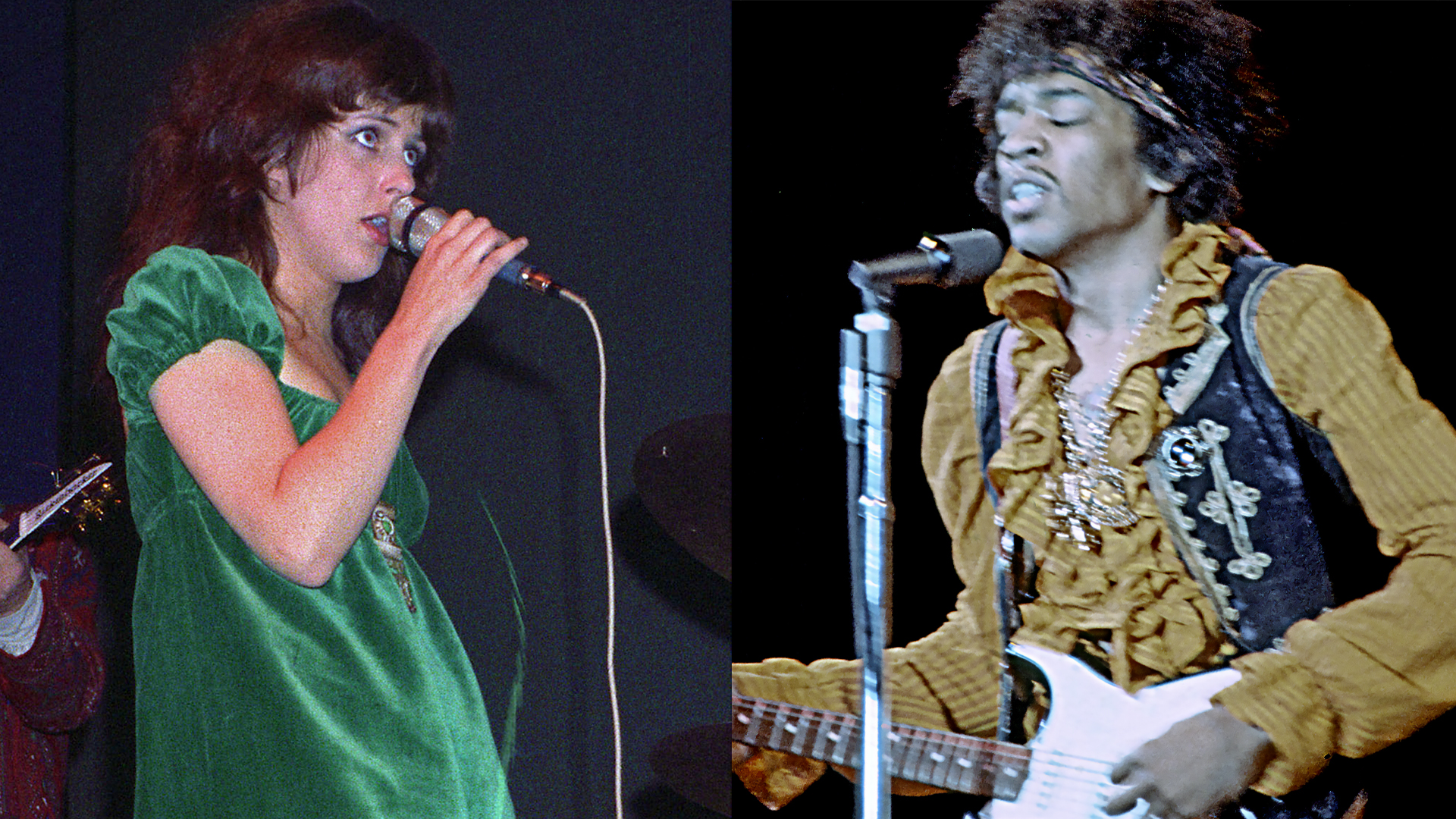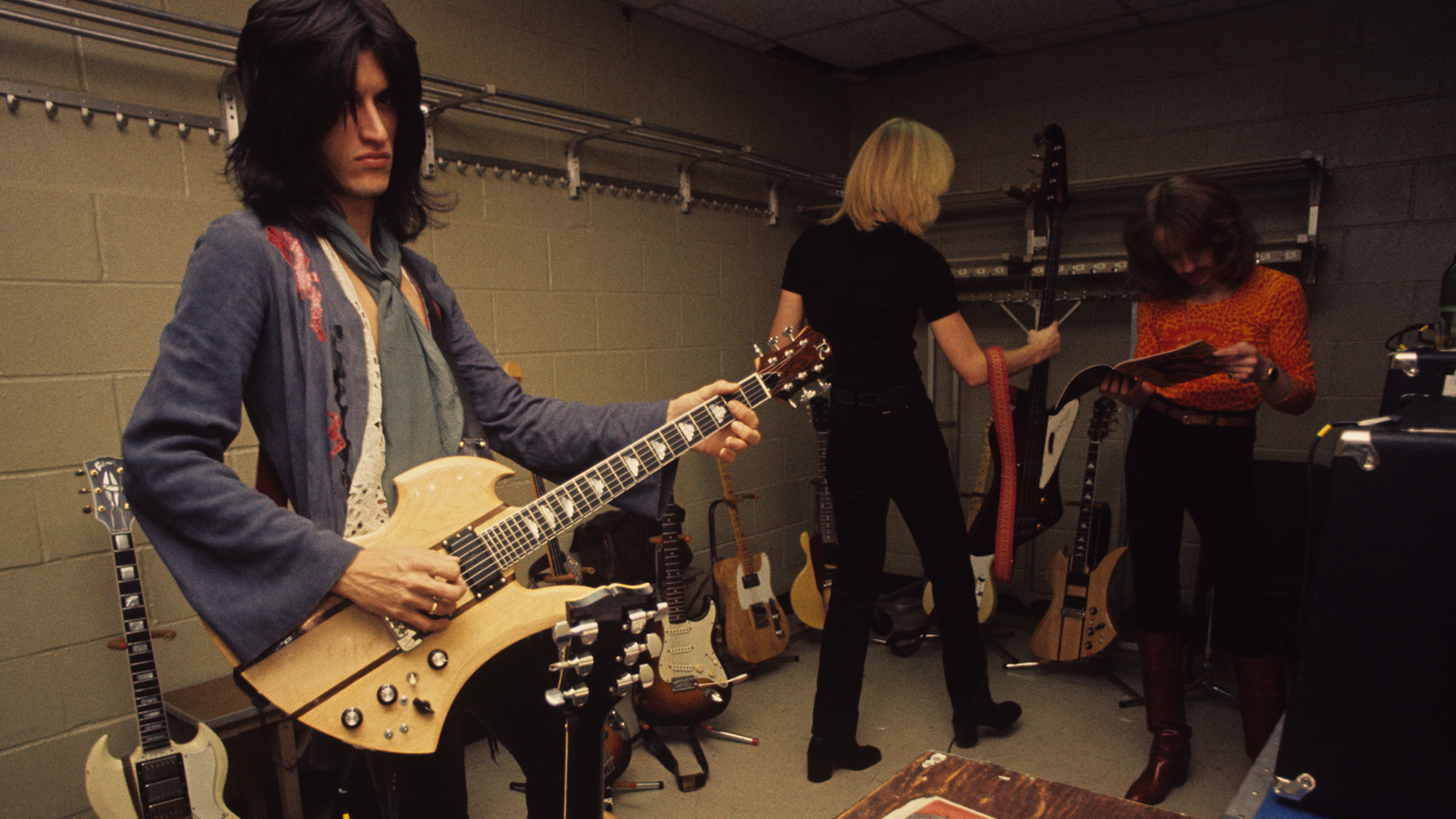“Jimmy Page, Ritchie Blackmore and Jimi Hendrix were great at writing them. Now the guitar riff has disappeared from popular music." Dweezil Zappa laments the absence of riffs in modern music and what it means for future guitar players
He’s mused on how songwriting has changed over the years, which has come at the expense of the riff and people’s exposure to the instrument

When it comes to guitar in modern music, Dweezil Zappa says the guitar riff has lost its place as the hook of the song, or even part of the song at all.
It’s no secret that the electric guitar has faded in stature within popular music since the 1990s. Some outliers buck the trend, of course. Taylor Swift’s popularity has helped shine a fresh light on the acoustic guitar as a songwriting tool, and contemporary pop queens Olivia Rodrigo and Chappell Roan find themselves in the center of a guitar solo revival.
But for the most part, the decline of the instrument has ultimately starved modern music of guitar riffs.
“A riff, in general, is a thing that has disappeared from modern music,” Zappa tells Matt Pinfield. “It used to be that you would have a singular type of phrase that was played on a guitar mainly, and — because of the personality of the guitarist, and the tone, and the vibe of it — you got into the song straight away. It wasn’t about all these other production elements. It was the real hook of the song.”
Taking Zappa’s comments at surface level, it would be easy to dismiss them as mere nostalgia chasing. Dig a little deeper, though, and it becomes an interesting observation of how songwriting, as an art form and a product has developed beyond the riff and the earworm it represented.
“You had guys like Jimmy Page, Ritchie Blackmore and Jimi Hendrix that were great at writing these small, micro-encapsulated things that would stick in your head," Zappa says. "That also inspired you to pick up the guitar because it was so cool-sounding that you’re like, ‘I gotta find a way to do that.’”
Zappa has previously spoken about how he became obsessed with Van Halen’s music after hearing "Eruption" for the first time, which sent him down his pathway to shred. Little would he know his guitar hero would come to his house less than a year later, allowing him the rare chance to learn from him up close. Soon after, Eddie Van Halen showed up at his school talent show to gift him a rare Kramer guitar.
Get The Pick Newsletter
All the latest guitar news, interviews, lessons, reviews, deals and more, direct to your inbox!
But apart from those lucky close encounters, Dweezil and so many impressionable teens like him were motivated to take up guitar by the power of guitar riffs.

Zappa points to some classic examples of rock tunes that remain popular today, many generations on, as evidence of the guitar power and the important role guitarists used to play in music writing.
“‘Smoke on the Water,’ ‘Purple Haze’ and songs that have these immediate things where you get into it as soon as you hear the guitar — that’s a really interesting way of thinking about how songs were written back in the day and what guitar players brought,” Zappa adds.
“‘Smoke on the Water’ is one of those riffs because it’s simple sounding. Compared to other things, it is easier to play on guitar, but it’s the feel and the timing and the way that he attacks the strings that gives it the personality that makes you really go, ‘Oh yeah, I’m into this.’”
As Deep Purple’s latest recruit, Simon McBride recently revealed, however, it’s a riff that many guitarists play wrong. The Irishman has stepped into Steve Morse's shoes after a lengthy 28-year spell as the band's lead guitarist and he's found that, when it comes to that iconic riff, simplicity is best.
“Some people overcomplicate the ‘Smoke’ riff by playing it like a guitar player — you know, they throw vibrato and other things into it – but then the riff loses its essence,” McBride says. “You just have to keep it simple. There are plenty of other places in the set for me to try new things.”
Dweezil doesn't go as far as to voice concerns about whether that could contribute to lower numbers of people wanting to learn the instrument, but it’s certainly clear that mainstream music is light on riffs and those eye-opening moments they can bestow on listeners the world over.
A freelance writer with a penchant for music that gets weird, Phil is a regular contributor to Prog, Guitar World, and Total Guitar magazines and is especially keen on shining a light on unknown artists. Outside of the journalism realm, you can find him writing angular riffs in progressive metal band, Prognosis, in which he slings an 8-string Strandberg Boden Original, churning that low string through a variety of tunings. He's also a published author and is currently penning his debut novel which chucks fantasy, mythology and humanity into a great big melting pot.
"We tried every guitar for weeks, and nothing would fit. And then, one day, we pulled this out." Mike Campbell on his "Red Dog" Telecaster, the guitar behind Tom Petty & the Heartbreakers' "Refugee" and the focus of two new Fender tribute models
“A good example of how, as artists, you have to blindly move forward with crazy ideas”: The story of Joe Satriani’s showstopping Crystal Planet Ibanez JS prototype – which has just sold for $10,000











